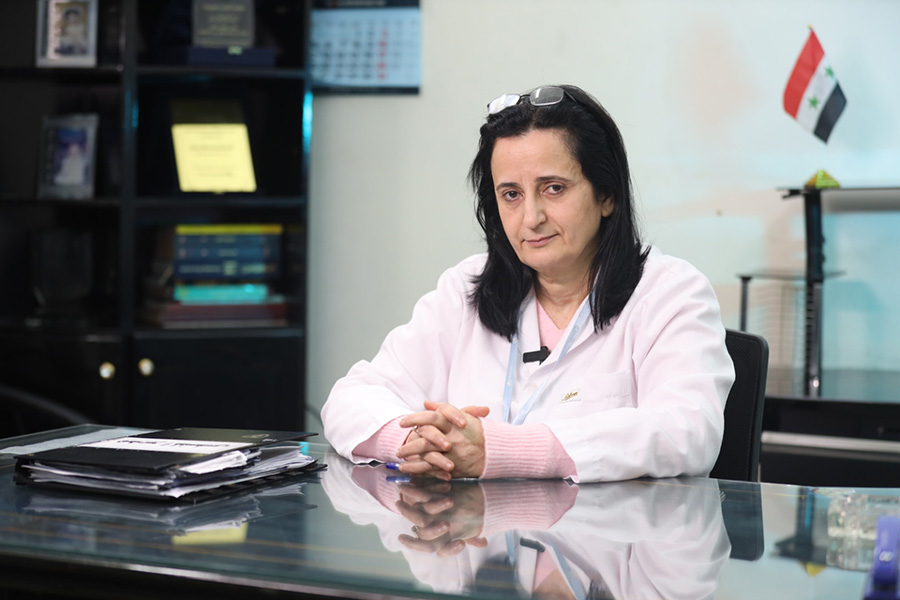 Dr Siham Makhoul, Director of the National Hospital of Latakia, Syria. Photo credit: WHO Syria6 February 2024 – I retain vivid memories of the earthquake. At just after 04:00, I was jolted awake by deep rumbling and roaring, and strong shaking. I live with my elderly mother, who is unwell, and my 2 sons; my first thought was to get them to safety. We got out of our building just in time before the quake totally flattened our home.
Dr Siham Makhoul, Director of the National Hospital of Latakia, Syria. Photo credit: WHO Syria6 February 2024 – I retain vivid memories of the earthquake. At just after 04:00, I was jolted awake by deep rumbling and roaring, and strong shaking. I live with my elderly mother, who is unwell, and my 2 sons; my first thought was to get them to safety. We got out of our building just in time before the quake totally flattened our home.
Once we were outside, my son asked me if I would be going to the hospital. I told him that of course I would go there immediately. There was no safe place for my family, so I took them with me. We all stayed in a room at the hospital for the first 24 hours.
At the hospital, I had to quickly assess the situation. How many staff did we have? How many surgeons were on call? Did we have enough ambulances, operating theatres, anaesthesia medicines? We had dire shortages of medicines and essential equipment like advanced X-rays, anaesthesia machines and [computed tomography] CT scanners.
Before the earthquake, managing the hospital from day to day was like walking a tightrope; I always felt that with the slightest nudge, we would fall. The earthquake wasn’t just a nudge, though; it was a powerful blow that shook us to the core.
In the days following the earthquake, the hospital was chaos. We were inundated with dead bodies, injured patients, and survivors looking for loved ones. One of our first admissions was a baby who had not survived. It was heartbreaking, but we knew we couldn’t let our emotions get the better of us.
One of my most painful memories is having to treat one of our own doctors, who had been admitted with very severe injuries. I could see that he was dead, but his colleagues tried to resuscitate him nonetheless. I told them that he had not survived and asked them to focus on the living. It was an agonizing moment.
I also remember the incredible solidarity. So many of our staff turned up spontaneously to help the emergency response. The local community brought food and drink. The Ministry of Health helped us tremendously. International organizations donated medicines and supplies. The hospital staff were remarkable. Our surgeons operated round the clock to save lives. Many nurses stayed in the hospital for days on end, treating wounds, caring for patients and supporting their families.
We got through those very difficult days, and we saved many lives. There is no doubt, though, that the trauma of this experience remains with us. To this day, you can see the panic in the eyes of our staff and patients whenever they hear unexpected noises.








